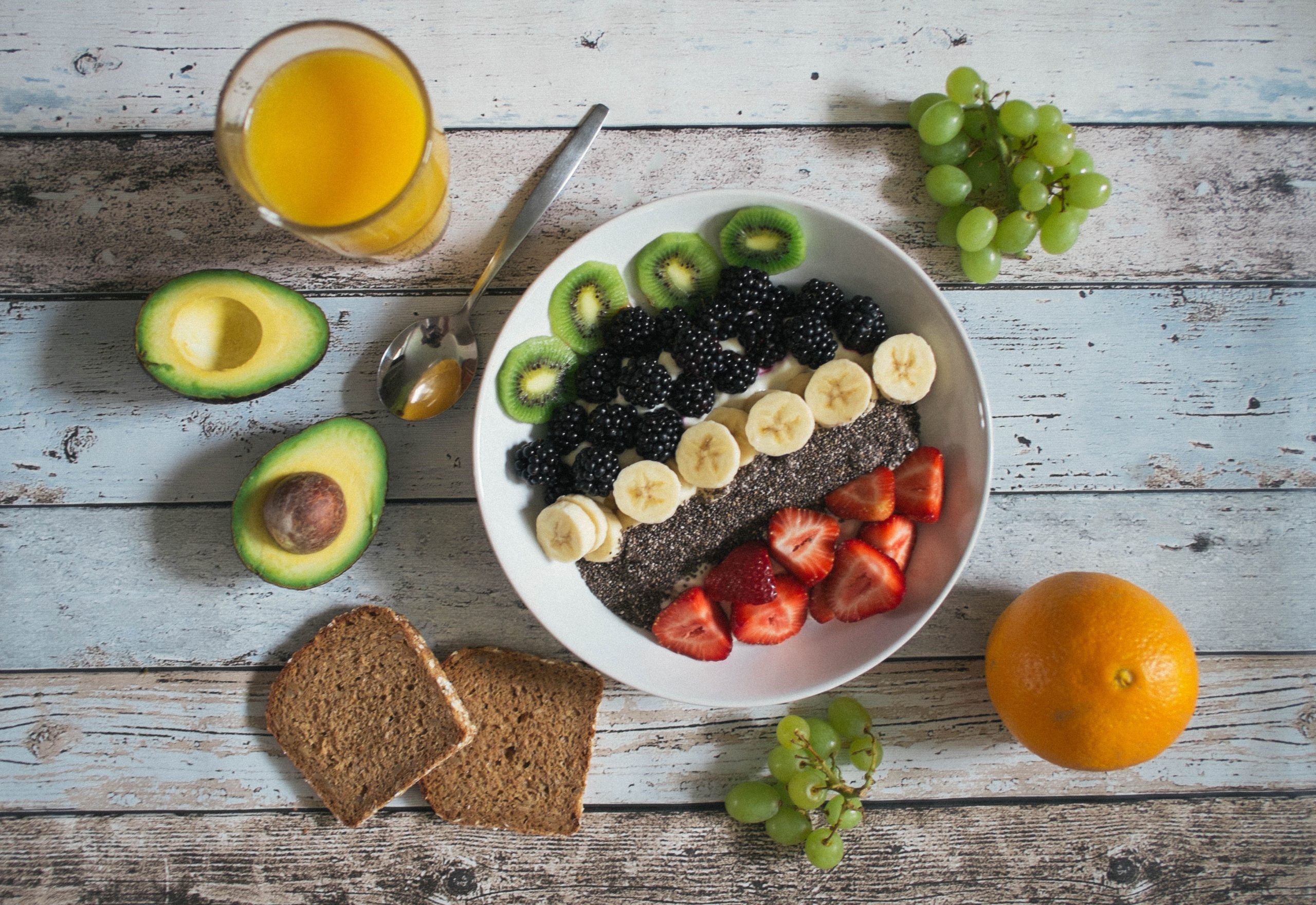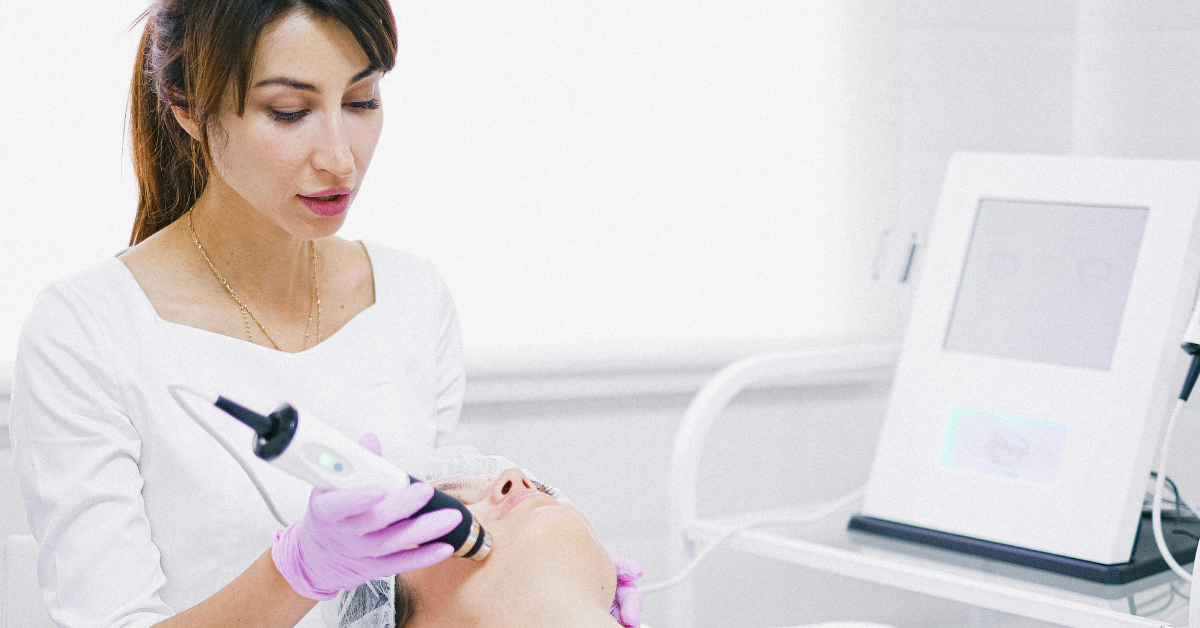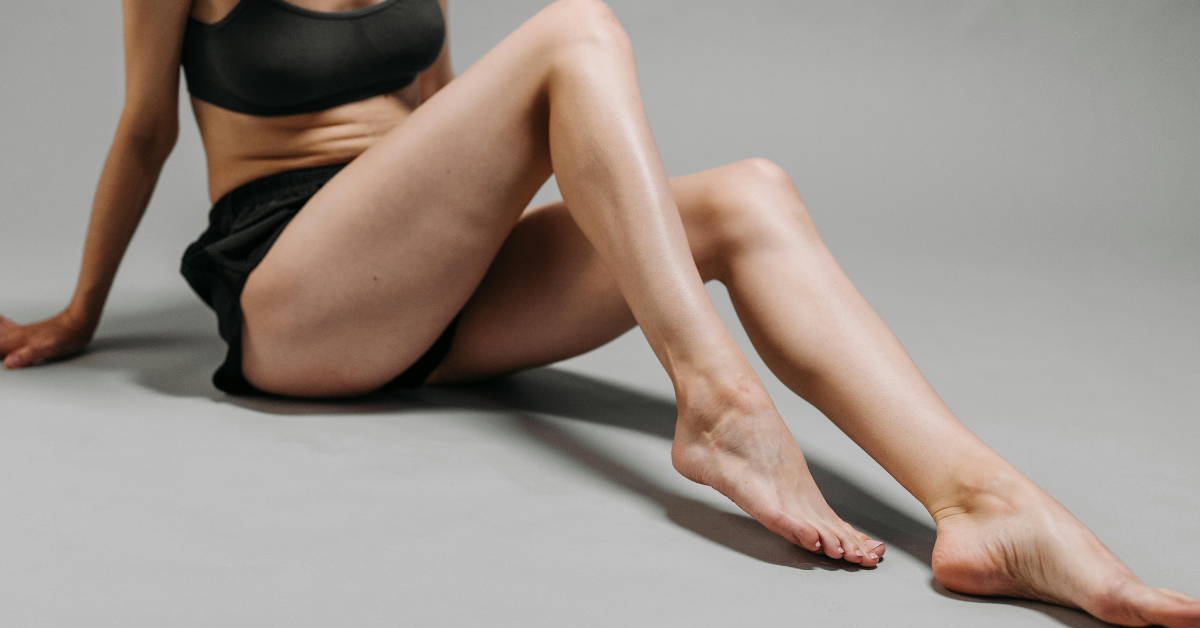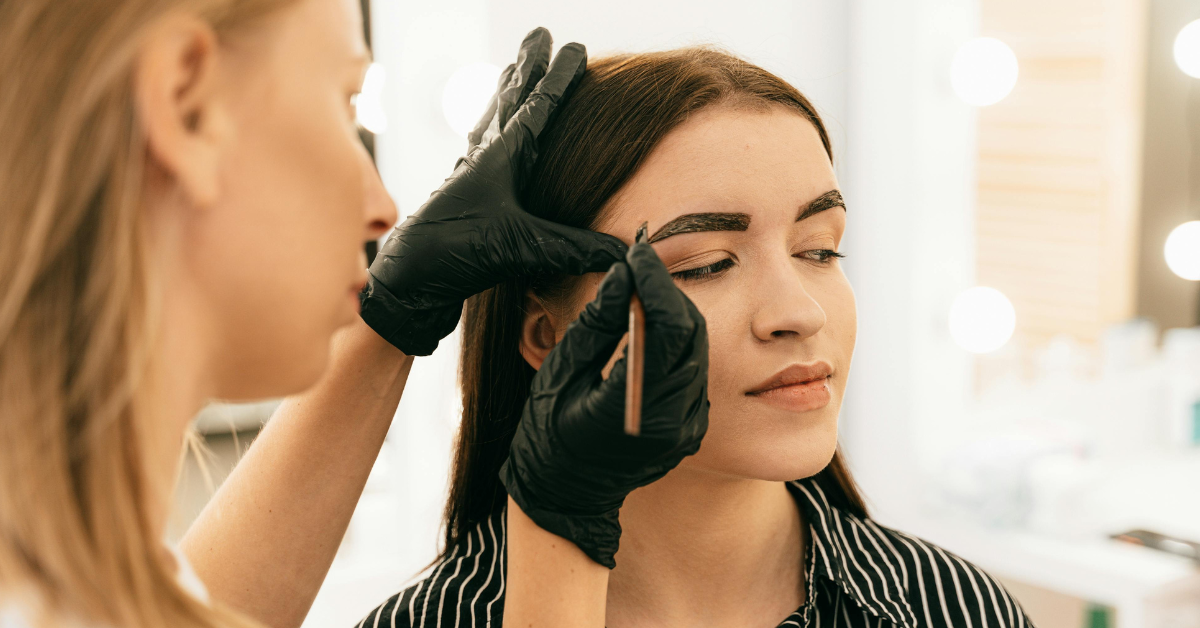Wrinkles, fine lines and creases are all part of the ageing process; it’s natural and to…

How Everyday Lifestyle Habits Impact Skin Health and Appearance
Your skin is the single most important barrier you have between you and the outside world. Beyond its aesthetic significance, its role in safeguarding your overall well-being is even more vital.
Covering an average of 1.5 to 2 square meters, the skin (which is the largest organ of the human body) consists of three primary layers – the epidermis, dermis and subcutaneous tissue. All of these work together to carry out various functions, contributing to your overall health and appearance.
These include:
- Protection: The skin’s outermost layer, the epidermis, serves as a strong barrier that shields your body from harmful external elements like pathogens, UV radiation and pollutants. It prevents excessive water loss and maintains a stable internal environment.
- Regulation: Your skin plays a pivotal role in regulating body temperature. When the body heats up, sweat glands release moisture, which evaporates and cools the body. Conversely, in colder conditions, blood vessels constrict to minimise heat loss.
- Sensation: Skin also hosts a network of sensory receptors that allow you to perceive touch, pressure, temperature and pain. This sensitivity contributes to your ability to interact with your environment effectively.
- Excretion and Absorption: Small amounts of waste products are eliminated through sweat, reducing the burden on other excretory organs. Moreover, the skin can absorb certain substances, such as medications or cosmetic products.
- Synthesis of Vitamin D: When your skin is exposed to sunlight, it produces vitamin D, which is essential for maintaining healthy bones and overall immune function.
Unfortunately, our best efforts to keep our skin in good condition may sometimes prove insufficient. Either through no fault of our own due to a predisposition or as a direct result of one or more lifestyle factors, the skin’s health and appearance can be compromised.
Just a few of the most common skin conditions that can seemingly appear out of the blue include:
Common Skin Conditions: Several prevalent skin conditions can affect individuals of all ages. These include:
Acne: Often associated with puberty but affecting adults too, acne results from clogged hair follicles and excess oil production. It can lead to pimples, blackheads and whiteheads.
Wrinkling: As you age, your skin naturally loses elasticity and becomes thinner. This can lead to the formation of wrinkles, fine lines and age spots.
Dryness: Insufficient moisture in the skin can lead to dryness, flakiness and discomfort. Factors like weather, harsh soaps and hot showers can exacerbate this condition.
Eczema: Also known as atopic dermatitis, eczema is characterised by inflamed, itchy skin. It’s often linked to allergies and can be triggered by various environmental factors.
Psoriasis: This chronic autoimmune condition leads to the rapid buildup of skin cells, causing red, scaly patches that can be itchy and painful.
Rosacea: Rosacea results in facial redness and visible blood vessels. It may also lead to the development of small, red, pus-filled bumps.
How Lifestyle Habits Influence Our Skin’s Health and Appearance
While many factors that affect the health and appearance of the skin our beyond our control, the most prevalent skin health influencers are everyday lifestyle habits. Most people are aware of how the choices they make each day affect their overall health, but the extent to which lifestyle choices impact both the appearance and health of our skin is less broadly acknowledged.
Irrespective of an individual’s age or beauty goals, it is essential to understand how the following factors can support and/or take a major toll on skin health:
The Impact of Diet on Skin Health
The saying “you are what you eat” applies to skin health, just as it does to our all-round health and well-being. What you put into your body has a direct impact on the appearance and vitality of your skin. A balanced and nutrient-rich diet can promote a clear, radiant complexion, while poor dietary choices can lead to various skin issues.
- Antioxidant-rich foods, such as berries, leafy greens and nuts, play a crucial role in protecting the skin from damage caused by harmful free radicals. These compounds help to maintain the skin’s elasticity and suppleness, as well as contribute to a youthful glow.
- Excessive consumption of sugar and processed foods can lead to an increased production of insulin, which in turn triggers inflammation in the body. Inflammation can manifest on the skin as acne, redness and other irritations. Opting for a diet low in refined sugars and processed foods can help mitigate such skin issues.
- Vitamins A, C and E are integral to skin health. Vitamin A aids in cell regeneration and repair, promoting smoother skin. Vitamin C is a potent antioxidant that supports collagen production, ensuring firmness and resilience. Vitamin E helps protect the skin from UV damage and maintains its moisture balance.
Sleep’s Influence on Skin Appearance
Beauty sleep is not a myth – it’s a science-backed reality. Sleep is the body’s natural time for repair and this extends to the skin. A lack of adequate sleep can disrupt the body’s restorative processes, impacting the skin’s appearance.
- During sleep, the body goes into repair mode. This is when cellular turnover is at its peak, allowing the skin to shed dead cells and regenerate new ones. Collagen production also increases, contributing to the skin’s firmness and texture.
- Insufficient sleep can lead to a dull complexion, dark circles and under-eye puffiness. When the body doesn’t have enough time to repair and regenerate, it can result in a tired and aged appearance.
- Establishing a consistent sleep schedule and creating a conducive sleep environment is vital for promoting both overall health and skin vitality. Quality sleep ensures the body has ample time to perform its rejuvenating processes.
The Significance of Sun Protection
Sun protection isn’t just about preventing sunburn; it’s about safeguarding your skin’s long-term health and appearance.
- UV rays penetrate the skin, damaging the DNA in skin cells. This damage can result in mutations that contribute to the development of skin cancers. Additionally, UV rays break down collagen and elastin, leading to wrinkles and sagging skin.
- Excessive sun exposure is a leading cause of premature aging. UV radiation accelerates the breakdown of collagen and elastin fibres, causing the skin to lose its firmness and elasticity. This can result in the development of fine lines, wrinkles and age spots.
- Protecting your skin from the sun involves more than just sunscreen. Wearing protective clothing, such as wide-brimmed hats and long sleeves, can provide an additional layer of defence. Seeking shade during peak sun hours also reduces UV exposure.
- It’s also crucial to recognise the potential consequences of excessive sun exposure. Unprotected sun exposure significantly increases the risk of skin cancer, including deadly melanoma. Regular use of sunscreen and practicing sun-safe behaviours can help mitigate this risk.
Stress and Its Effects on Skin
The mind and body are closely connected – when stress levels rise, the skin often reacts. Stress can exacerbate existing skin conditions and even lead to the emergence of new ones.
- When the body experiences stress, it releases cortisol, a hormone that triggers various physiological responses. Elevated cortisol levels can lead to increased oil production, resulting in acne breakouts.
- Stress-induced inflammation can manifest as redness, irritation and breakouts on the skin. Chronic stress can disrupt the skin’s barrier function, making it more susceptible to environmental aggressors.
- Chronic stress can exacerbate inflammatory skin conditions like eczema and psoriasis. Stress triggers the release of inflammatory molecules that can worsen the symptoms of these conditions, leading to itching, redness and discomfort.
Your Skincare Routine and Its Role
A consistent skincare routine forms the foundation of healthy skin. Proper cleansing, moisturising and exfoliating habits can help address various skin concerns and promote a clear complexion.
- Cleansing removes impurities and excess oil, preventing clogged pores and breakouts. Moisturising keeps the skin hydrated and supple, while exfoliation removes dead skin cells, promoting cell turnover and a more radiant complexion.
- Not all skincare products are one-size-fits-all. It’s essential to choose products tailored to your specific skin type – whether it’s dry, oily, combination, or sensitive – to achieve the best results.
- Using the wrong products or neglecting skincare can result in acne flare-ups and increased sensitivity. It’s important to use non-comedogenic products and avoid harsh ingredients that can exacerbate these issues.
Smoking and Alcohol’s Impact on Skin
Smoking and excessive alcohol consumption have far-reaching effects on overall health and their impact on the skin is particularly noticeable. Both habits can contribute to premature aging and various skin issues.
- Smoking narrows blood vessels and reduces blood flow, which means less oxygen and nutrients reach the skin. This leads to a dull complexion, increased wrinkles and a loss of skin elasticity. It also accelerates the aging process, leading to premature wrinkles, fine lines and a leathery texture. The harmful chemicals in tobacco smoke damage collagen and elastin fibres, which are essential for youthful skin.
- Alcohol is a diuretic, which means it dehydrates the body, including the skin. Dehydrated skin appears dry, flaky and lacks radiance. Over time, this can lead to a loss of plumpness and firmness.
- Excessive alcohol consumption can lead to broken capillaries, particularly on the face, causing redness and a flushed appearance. This can also exacerbate conditions like rosacea.
Exercise and Skin Glow
Exercise isn’t just beneficial for your body; it also has a positive impact on your skin. Engaging in regular physical activity promotes a healthy complexion and a radiant glow. A sedentary lifestyle can contribute to poor blood circulation, resulting in lacklustre skin tone and texture. Regular exercise helps maintain the skin’s health and vitality.
- Exercise increases blood circulation, delivering oxygen and nutrients to the skin cells. This boost in circulation contributes to a vibrant complexion and faster cell turnover.
- Physical activity triggers the release of endorphins, the body’s natural “feel-good” chemicals. These endorphins help reduce stress, which in turn can lead to fewer stress-related skin issues.
- While exercise is beneficial, it’s important to maintain clean skin during and after workouts. Sweat can mix with bacteria and dirt, potentially leading to breakouts. Cleansing post-workout helps prevent this.
The Importance of Hydration
Hydration is a fundamental pillar of skin health. Drinking an adequate amount of water helps to maintain the skin’s moisture balance and supports various physiological processes that contribute to skin vitality.
- Water plays a crucial role in detoxifying the body and this includes the skin. Hydrated skin is more plump and elastic, giving it a youthful appearance.
- Dehydration can lead to dry, tight and uncomfortable skin. When the body lacks sufficient water, the skin’s barrier function can be compromised, making it prone to moisture loss.
- In addition to drinking water, incorporating water-rich foods like fruits and vegetables into your diet can contribute to hydration. Herbal teas and infused water can also provide a refreshing way to stay hydrated.
Ask the Experts…
If you have any questions or concerns regarding the health or appearance of your own skin, the team at Cambridge Laser Clinic would be delighted to hear from you. At your convenience, we invite you for an obligation-free consultation with our clinicians, during which you will be able to discuss your beauty goals and explore the various treatment options available.
For more information or to discuss any of the cosmetic treatments we provide in more detail, contact a member of the team at Cambridge Laser Clinic today.



